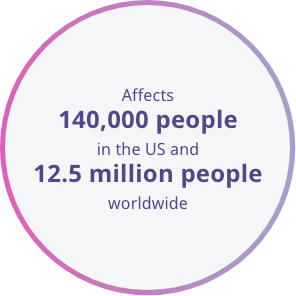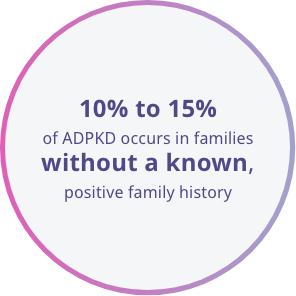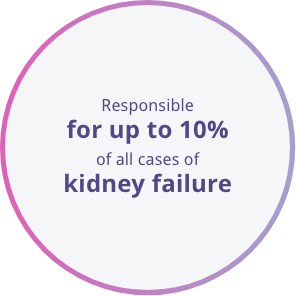
Find out about your own medical history.
You can learn a lot of information from genetic testing and talking with family members.
NEXT: MEDICAL HISTORYFor U.S. Residents Only

Prevalence and impact



ADPKD=autosomal dominant polycystic kidney disease.
How is ADPKD passed down in families?
Since ADPKD is an autosomal dominant disease, both males and females have an equal chance of inheriting ADPKD. The possibility of transmitting ADPKD from an affected parent to their children is 50%. If you inherit the disease-causing variants, you will have almost a 100% chance of developing ADPKD by the time you are 30 years old. The age of onset and rate at which the disease gets worse can vary in family members.

DNA=deoxyribonucleic acid; PKD1=polycystic kidney disease 1; PKD2=polycystic kidney disease 2.

Some signs and symptoms of ADPKD
Fluid-filled cysts in
the kidneys
High blood
pressure
Lower back and/or
stomach pain
Urinary tract
infection
Blood and/or
increased protein
in the urine

If you have ADPKD, talk to your family members right away. Encourage them to get tested and talk to their doctor. Early diagnosis can make a difference in how the disease is treated.
START SHARing
Find out about your own medical history.
You can learn a lot of information from genetic testing and talking with family members.
NEXT: MEDICAL HISTORY